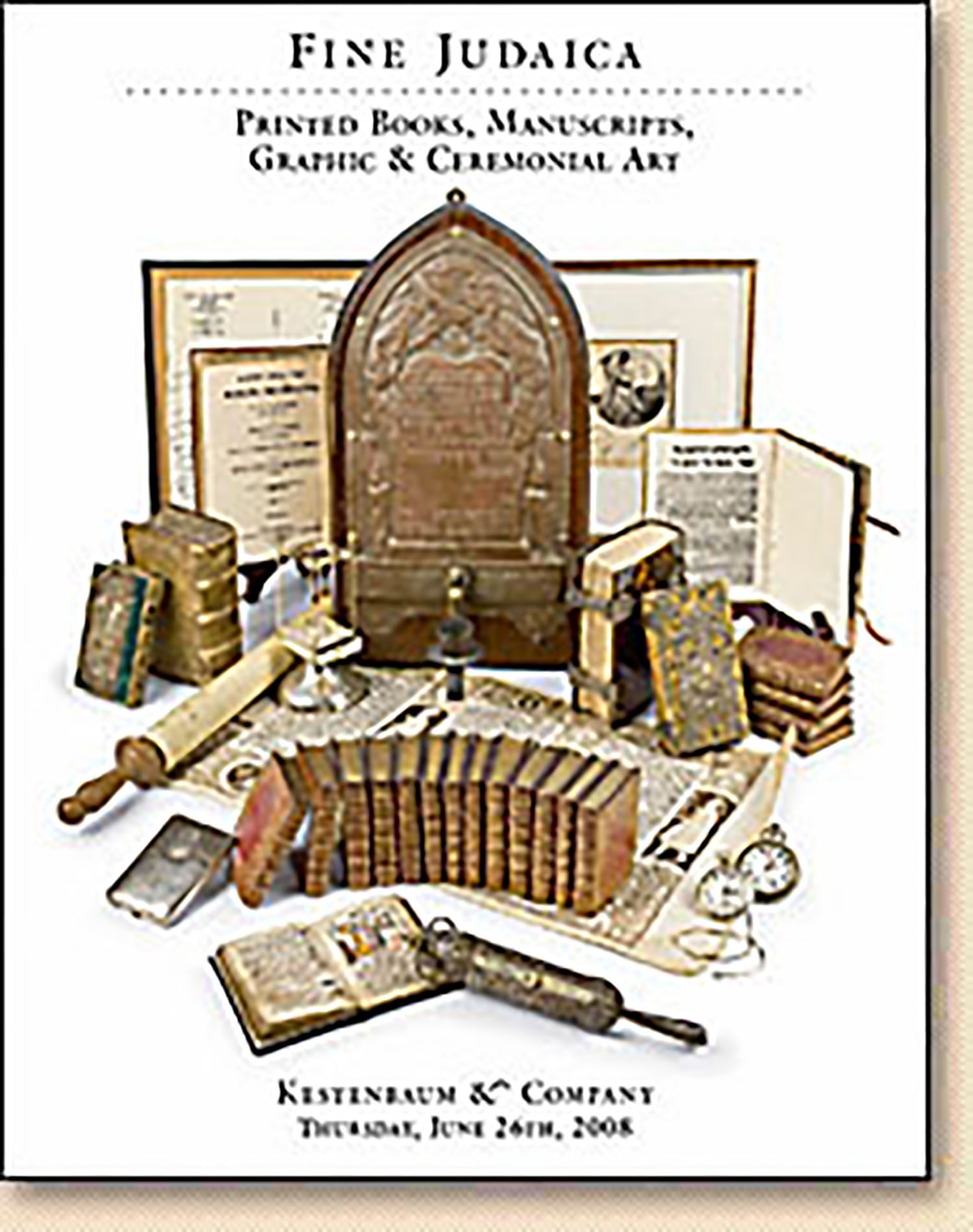Noah, Mordechai M. Travels in England, France, Spain, and the Barbary States, in the Years 1813-4 and 1815.

AUCTION 40 |
Thursday, June 26th,
2008 at 1:00
Fine Judaica: Printed Books, Manuscripts, Autograph Letters, Graphic & Ceremonial Art
Lot 9
(AMERICAN JUDAICA).
Noah, Mordechai M. Travels in England, France, Spain, and the Barbary States, in the Years 1813-4 and 1815.
New York and London: 1819
Est: $4,000 - $6,000
PRICE REALIZED $3,800
PRESENTATION COPY SIGNED BY THE AUTHOR.
Mordecai Manuel Noah (1785-1851) was one of the most important figures of his time. He was a person of many accomplishments: lawyer, newspaper editor, playwright, diplomat, politician, judge and major activist for Jewish causes.
Noah was appointed American consul to Tunis in 1813. He was recalled two years later, in part for mishandling a secret mission entrusted to him by the State Department. Upon returning to the United States, Noah was assailed for allegedly failing to execute his duties and he spent much time and effort seeking to clear his name and was indeed later vindicated. This was among the motives for publishing his Travels: “This work, may, therefore, be considered as a work of explanation and defence, although my official affairs occupy but a small portion of it.”
Noah was particularly distressed that the official dispatch recalling him as consul cited his Jewish faith as the pretext (pp. 376-82, xxiv-xxvi). Even if this were the true motive, he wrote, “no official notice should have been taken of it; I could have been recalled without placing on file a letter, thus hostile to the spirit and character of our institutions.” To vindicate the reputation of American Jews, he included letters attesting to their virtues received from Thomas Jefferson, James Madison and John Adams. “Still, by focusing on the Jewish aspects of his consularship and recall, Noah probably did the Jewish community a favor. The State Department never again openly cited religion as a factor in the selection of diplomats”. (Sarna p. 32).
Noah’s “Travels” was well received by contemporary critics, especially since, according to one reviewer, Noah was the first American to take advantage of the unique opportunities afforded a diplomat to compose such a comprehensive work about other lands. The book abounds with colorful details concerning the daily life, social customs and political intrigues of both Moslems and Jews. According to Sarna, the volume is “still the best primary source on early nineteenth-century Tunisian Jewry.” See Sarna, Jacksonian Jew: The Two Worlds of Mordecai Noah, pp.15-32.
Noah commanded the respect of four Presidents-Adams, Madison, Jefferson and Jackson. It has been said that to the Jews of his day, he was the quintessential American, and to the Americans, he was the representative Jew.
Colonel John Trumbull (1756-1843), the recipient of this copy from the Author, is known as the "painter of the Revolution." He entered the Revolutionary War as an aide-de-camp to George Washington who valued the accuracy of his drawings."His 250-300 faithful representations…of the principal actors and actions of the Revolution make him the most competent visual recorder of that heroic period" (Dictionary of American Biography)
